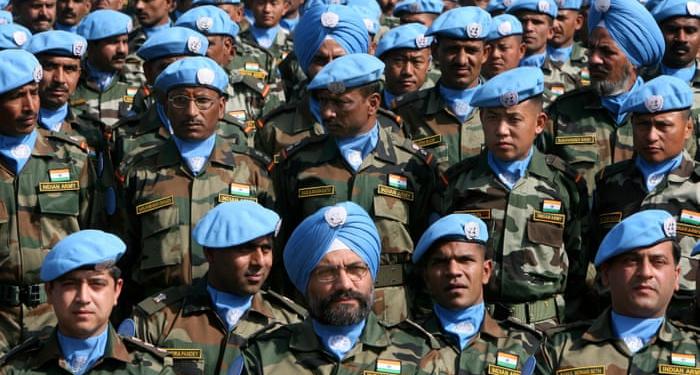India has been at the forefront of advocating and working for global peace for decades. The country has contributed the highest number of security professionals to the UN peacekeeping forces. United Nations owes the highest debt to India of 38 billion dollars, followed by Rwanda, Pakistan and Bangladesh. The financial condition of the international body is not very strong and it owes to many other countries including Bangladesh and Rwanda. UN has to pay a total of 265 million dollars for active peacekeeping forces and police contribution by various countries. The global body owes this money to many low and middle-income countries and the amount could be a heavy burden to the public exchequer in nations like Rwanda.
“That has created a paradox. The United Nations is now effectively borrowing for prolonged periods from troop- and police-contributing countries. Many of them are low-income countries for which that impose a significant financial burden. At the same time, the Organisation is asking those same countries to do more to train their personnel and improve the quality of their equipment, all while operating in increasingly challenging environments. The United Nations, however, is not fulfilling its obligation towards them in a timely manner,” said UN Secreatry General Antonio Guterres.
The balance sheet of the UN has deteriorated over the years. The global agency had 412 billion dollars in the late 2000s but by the end of 2018, it had a negative cash balance of 323 billion dollars, a decrease of 735 billion dollars in less than a decade. UN is being able to reform the structure as per changing power structure around the world. India seeks to play an important role to play on the global stage and is pushing for a seat in the UN Security Council, the most powerful decision-making body of the multilateral organization.
Last year, UN General Assembly President Maria Fernanda Espinosa had described India as a ‘very important player’ of global multilateral system. “India is indeed a very important player of the multilateral system. It is a friendly country to the United Nations. If India succeeds in the achievement of the 2030 Agenda – we are talking about 1.3 billion people – this really can change the face of the world,” said Espinosa who assumed presidency in September this year.
She lauded India’s efforts in UN peacekeeping forces and its progress towards SDG. “It is very important also to set the standards on issues of involvement of women in peacekeeping, zero tolerance to any abuse or violence against women peacekeepers and against women and girls in general in conflict situations,” said Espinosa.
The outdated setup has 10 non-permanent members and 5 permanent members currently. The G4 countries (Brazil, Germany, India and Japan) support each other’s candidature however each of them have opponents which do not want UNSC permanent members expanded. India’s candidacy is opposed by Pakistan, Japan’s candidacy opposed by China, Germany’s candidacy by Italy and Brazil’s candidacy opposed by Argentina citing reasons that the expansion will lead to imbalance of power in the world.
The old UNSC system is dysfunctional. It is either manipulated or paralyzed when a crisis looms over the world. So, it is in the interest of world fraternity to make the UN system work the way it was intended to by reforming it. Dominant powers have dealt with multilateralism where convenient and unilateralism was necessary. As time passes day by day the situation gets worse, few powers are the marionettes who make the world sway to the symphony of destruction. If the Security Council is not reformed sooner than later, the history will not absolve United Nation’s hegemonic powers (that back terrorism and occupy permanent membership) for their blunders. Lastly, reforming UNSC is not a choice anymore but a necessity.




















